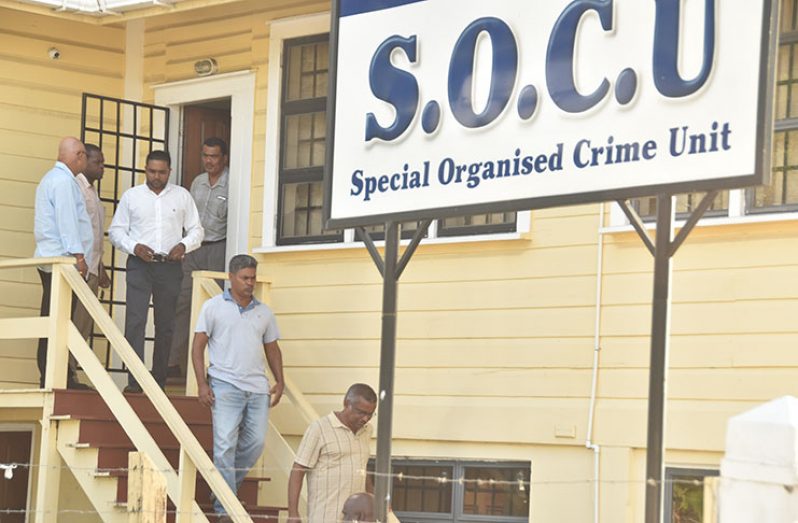SIX former Guyana Rice Development Board (GRDB) board members will appear in court today after they were jointly charged by the Special Organised Unit (SOCU) for failing to make a proper entry into a register of a company.
This was following the findings of an audit into the finances of the GRDB.
Those that will be charged are former GRDB head Ricky Ramraj; former General Manager Jagnarine Singh; former GRDB board members Dharamkumar Seeraj, Badrie Persaud, PPP Parliamentarian Nigel Dharamlall and former Deputy Permanent Secretary (Finance) of the Ministry of Agriculture, Prema Roopnarine.
The members of the opposition People’s Progressive Party (PPP) also visited Eve Leary and gave their fingerprints and were later released on station bail at the Brickdam Police Station.
Attorneys representing the persons charged include Anil Nandlall, Priya Manickchand, Sase Gunraj and Glen Hanoman.
Former Attorney General Anil Nandlall said the charges are frivolous and vexatious, since the charge surrounds the failure to make certain entries in relation to monies received through a foreign-funded project.
“There is no evidence that this money was missing, that the money was not spent for the purpose it was disbursed. In fact, the money was spent for the purpose it was disbursed, the international lending agency would have only released monies having been satisfied that the accounting process were [sic] complied with and that is because it’s a revolving fund,” Nandlall explained.

He said it is strange that members of the board are being charged and not the accountant, since it deals with an omission of a ceremonial entry into an accounting log book.
“They are being charged jointly for omitting to record the particular inflow of money into a book, they were supposed to be done at GRDB. One would have expected that they would have charged them for missing funds or for some type of fraud if there was any evidence of such,” Nandlall said.
He noted that public monies have to be better spent since the charges implemented will cost the State millions of dollars to prosecute, and in the end, it would never yield a conviction.
“A person charged in these circumstances would be advised to sue the State for compensation, because it is nothing short of malicious prosecution and public harassment of professional people that are being dragged through the mud,” Nandlall contended.
He explained that if such scrutiny is applied across the board in the public and private sectors, thousands of persons would be charged and the criminal justice system was not created to sanction and penalise persons in such fashion.
SOCU, he said, enforces anti-money laundering laws, but when the agency goes about charging persons frivolously, it makes a mockery of itself.



.jpg)








